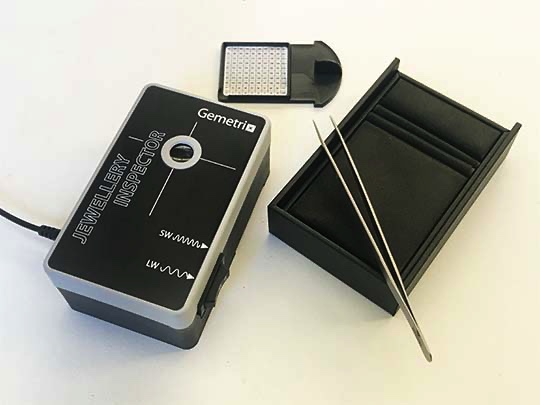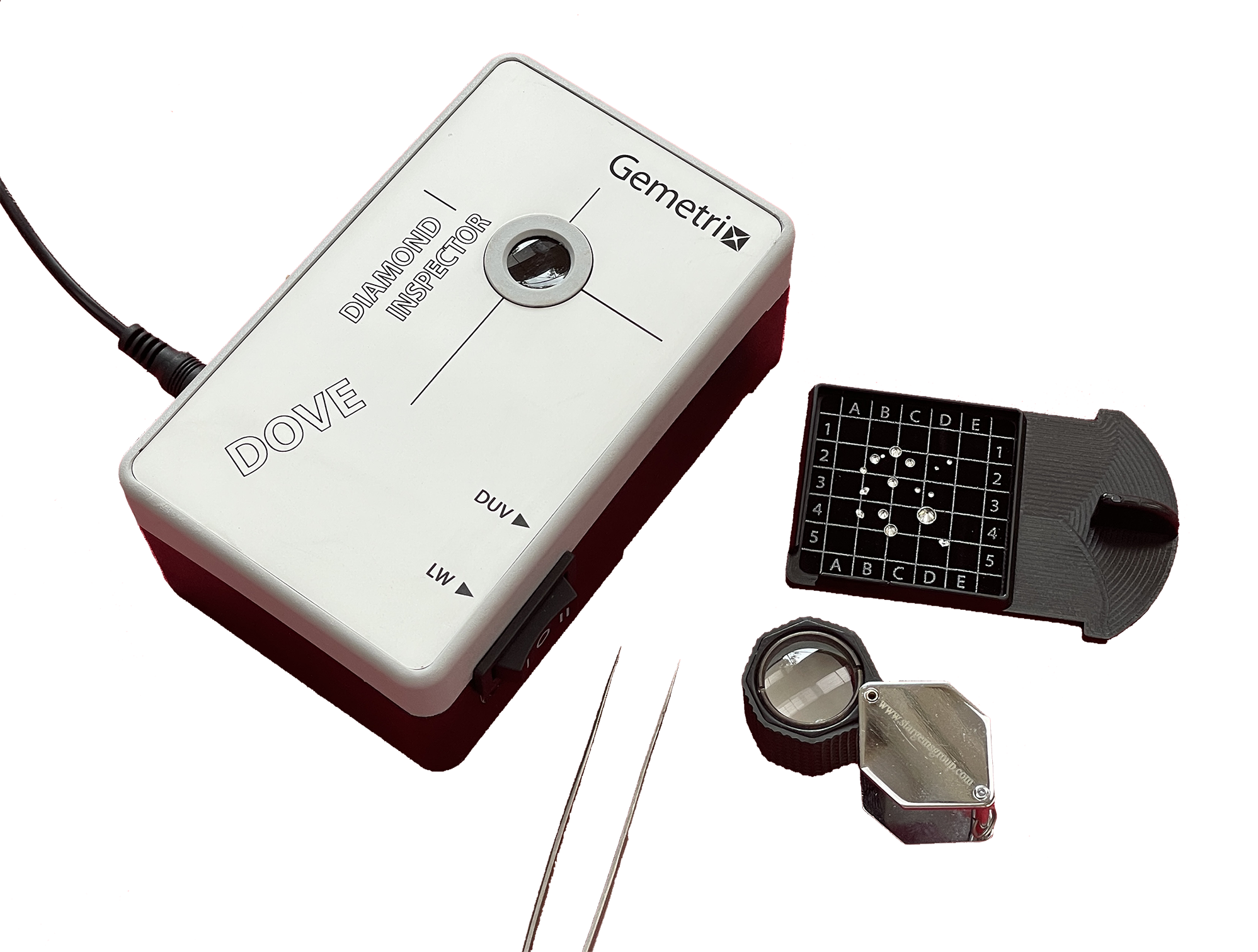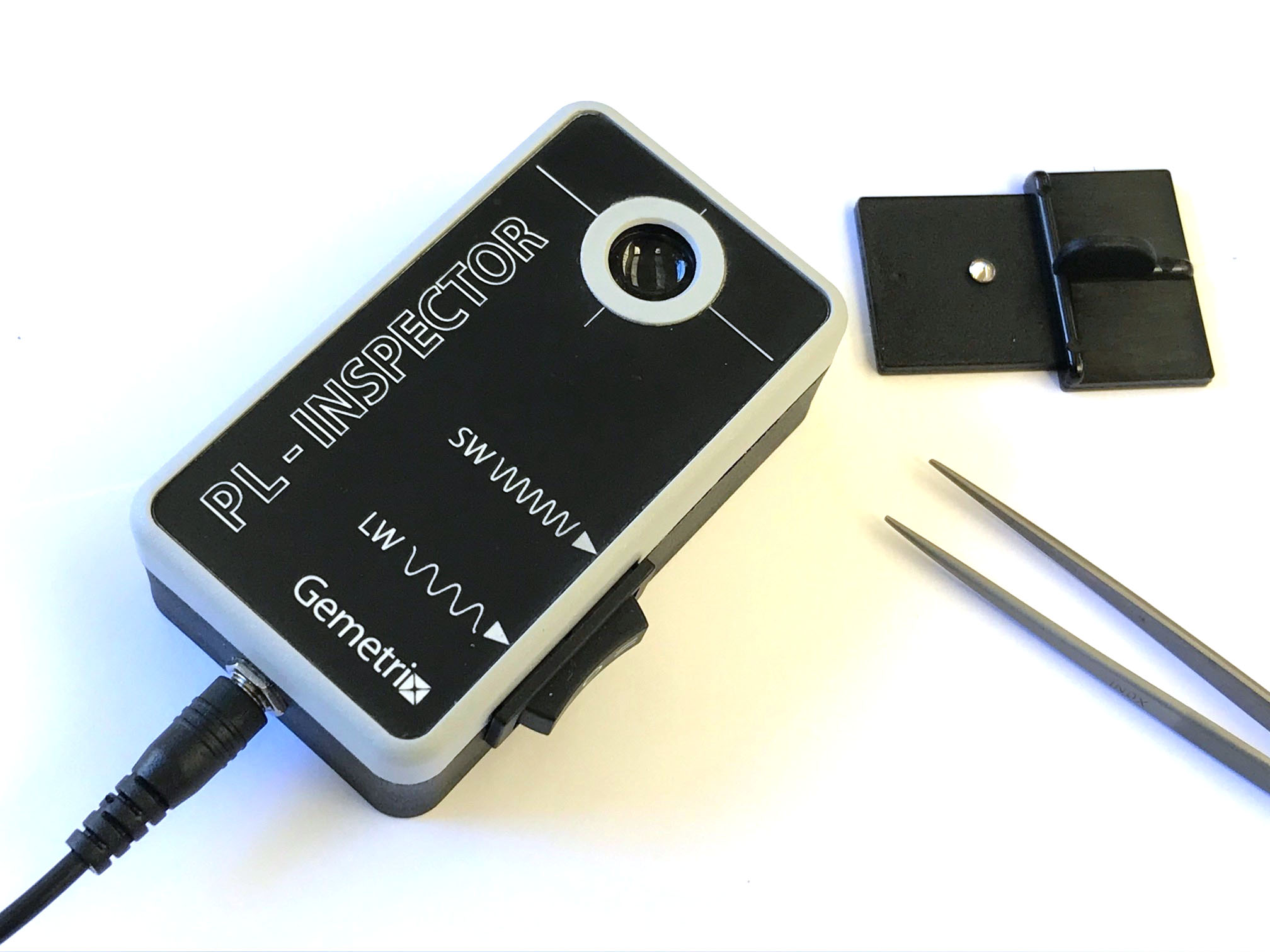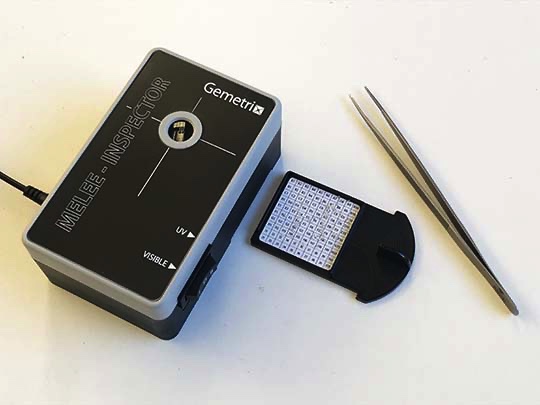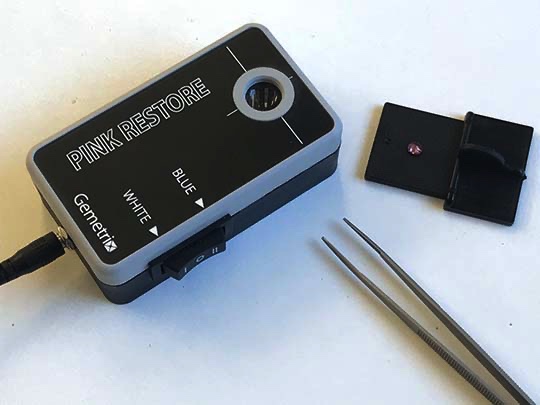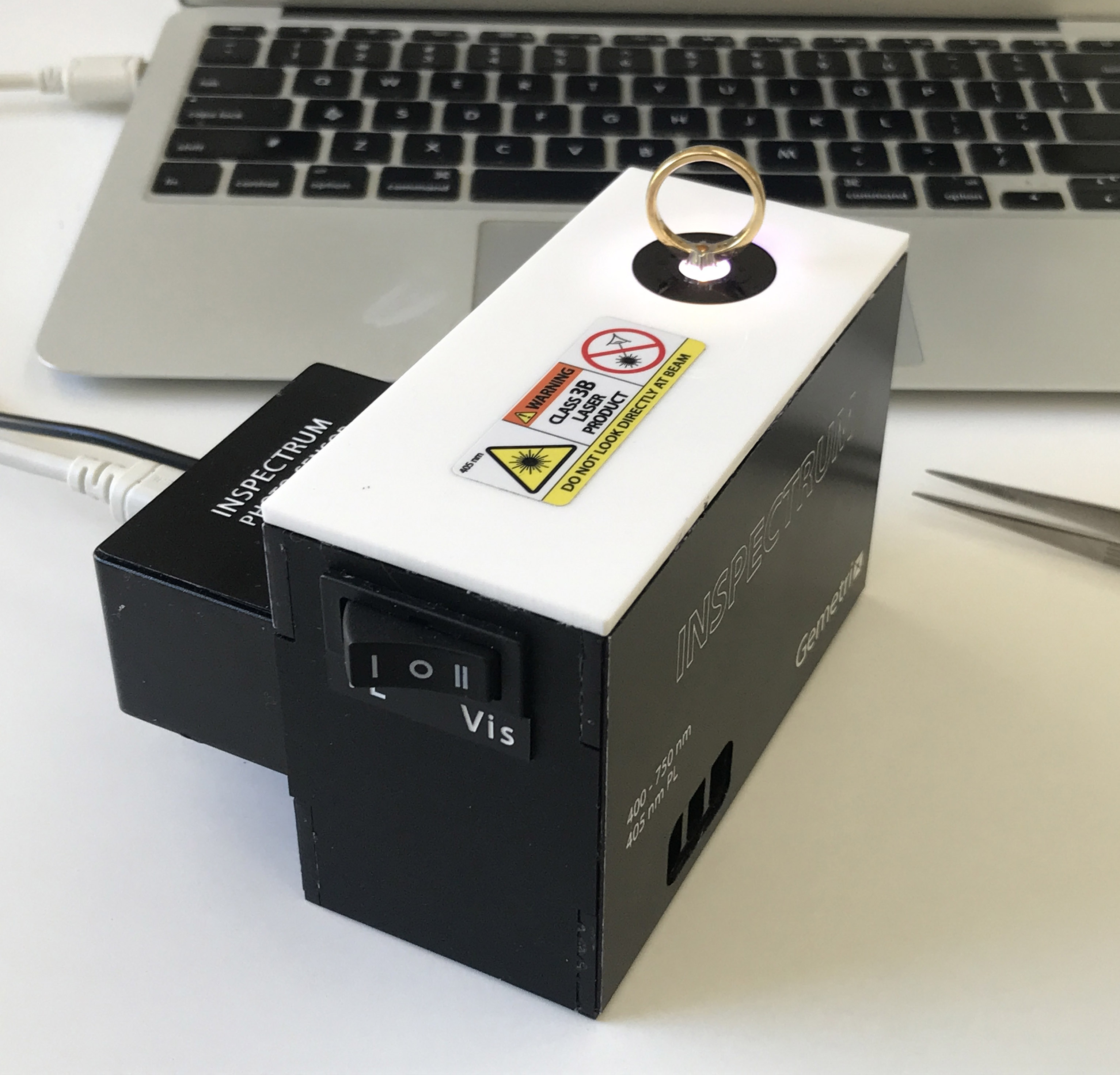Products for synthetic diamond detection
CAUTION: There are fake copies of Gemetrix products, particularly in India. The genuine products appear as shown on this website and are all assembled in Australia.
The Inspectors allow for observation through a magnifying lens of fluorescence and or
phosphorescence from bright ultra-violet illumination. These observations can help a gemmologist
determine whether a diamond or gem is synthetic or treated. The colour and intensity of the fluorescence
provides useful indicators. Phosphorescence after SW illumination is an effective technique to identify
lab-grown diamonds grown by HPHT methods.
Depending on the application, four Inspector models are available. The PL and Jewellery Inspectors provide LW (365 nm) and SW (255 nm) UV illumination, the Melee Inspector only provides SW UV and white light illumination, while the latest addition - the Dove, provides deep UV (220 nm) and LW. Gemetrix Mobile App allows a smartphone camera to capture and compare images. Visit the Gallery for examples of reactions. All models have a dark enclosed viewing chamber and are powered by a 12V power adaptor with a plug configuration to suit your country. Features of the different Inspector models are described below.
Jewellery Inspector
A Jewellery Inspector has been a popular model for gemmologists as it delivers a compact version of the cumbersome UV cabinets
that have been commonly used for decades. The UV intensites are high and when coupled to a camera phone, even the weakest fluorsecence or
phosphorescence can be seen. The unit is provided with a custom tray for examining jewellery while a second tray with a grid pattern
is provided for examining small (melee) diamonds.
The viewing area is 50 × 50 mm.
Size: 130 × 80 × 50 mm.
Dove Diamond Inspector
A Dove Diamond Inspector is the latest Gemetrix instrument to identify natural and synthetic diamonds. It is similar to the Jewellery Inspector
however the SW is replaced by Deep UV (220 nm). At this wavelength it is possible to distinguish natural from synthetic diamonds almost exclusively
with the DUV reactions. The unit is provided with the same trays as for the Jewellery Inspector.
The viewing area is 50 × 50 mm.
Size: 130 × 80 × 50 mm.
PL Inspector
For examining fluorescence and phosphorescence in gems, especially suited for single unmounted stones.
The viewing area is 15 x 15 mm.
Size: 100 x 55 x 30 mm (pocket size)
A quick guide to using a PL-Inspector can be downloaded here (PDF file).
Melee Inspector
An effective solution to examine melee diamonds (loose or mounted) for (HPHT-grown) synthetics using phosphorescence without the need for interpretation.
The viewing area is 50 × 50mm.Size: 130 × 80 × 50 mm.
Product for pink colour restoration
When subjecting Argyle pink diamonds to UV either when using an Inspector or when fluorescence grading,the colour can become bleached.
It will return after prolonged exposure in white light, but with intense light at a certain blue wavelength the colour can return within a minute.
A Pink Restore provides strong illumination at that optimum wavelength.
Pink Restore
For restoring pink colour to UV-bleached diamonds.
The viewing area is 15 x 15 mm.
Size: 100 x 55 x 30 mm (pocket size)
Product for gem spectroscopy
While fluorescence colours and intensities can provide valuable information about a gem, there is no substitute for either a spectrum of the
fluorescence (PL spectrum) or a transmission spectrum, especially when a stone is inert to UV. A Gemetrix Inspectrum enables the aquisition
of both types of spectra in the wavelength range 410 - 750 nm. For diamonds, spectral features at 415, 576, 637 and 741 nm are especially
useful in determining if a diamond is natural or has been treated.
Inspectrum
For observing and recording the PL emission spectrum and the transmission spectrum of a gem.
Wavelength range: 410 - 750 nm
PL excitation: 405 nm
Resolution: 1 nm
For loose or mounted stones
Connects to laptop
AVAILABLE NOW
